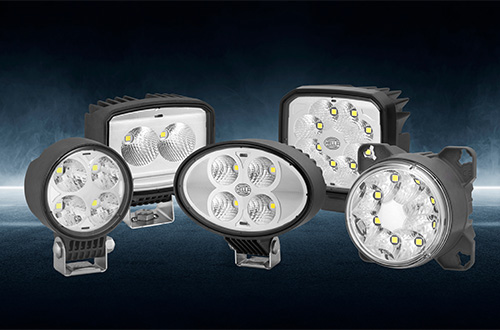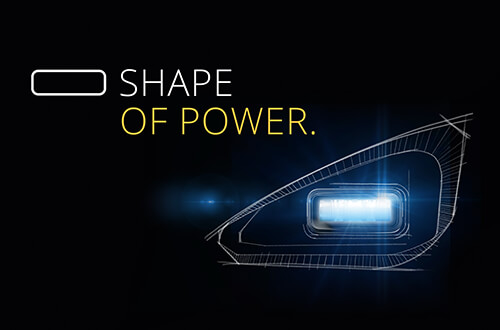|
|
|
|
|
|
|
|
Energy management with IBS Global for 12 V batteries
20-05-2022Clever energy management
Intelligent battery sensors (IBS) for 12-volt lead-acid batteries ensure optimum energy management in cars and vans (both with internal combustion engines and electric motors), agricultural machinery, last-mile vehicles, motorhomes, small construction machines, quad bikes, diesel forklifts and marine applications.
The IBS Global measures the condition of the battery and provides information on the state of charge (SOC), ageing (SOH) and starting capability (SOF). The sensor can be easily integrated into the vehicle electrical system where it monitors battery voltage, power and temperature 12 V vehicle electrical system environments. This information can then be issued via a control panel or the on-board computer.
While the first generation of the IBS Global could be configured to 250 ampere-hours, the IBS global (Generation II) manages up to 500 ampere-hours and can thus also monitor larger batteries. The HELLA IBS Global is also particularly robust and can reliably detect short-term, high current consumption – for example when bow thrusters are used.
The key points in short:
- Space-saving and compact sensor, specially designed for the needs of passenger cars, EVs, agricultural machinery, last-mile vehicles, marine applications and motorhomes
- Accurate measurement of battery condition parameters: voltage, current and temperature
- Determination of parameters regarding condition of the battery- i.e. state of charge (SOC), state of health (SOH) and state of function (SOF)
- Simple electrical and mechanical integration
- Over 200 million HELLA IBS have been produced worldwide to date
- The IBS is a reliable solution to prevent vehicle failures
Easy handling
The IBS Global is designed to fit precisely on the negative battery pole. As a measuring resistor for the current measurement, the battery sensors’ shunt component is attached to the vehicle’s load path while the ground cable is simply attached to the earthing bolt. The IBS electronics are located in a cast housing with a plug connector, offering it ideal protection. The IBS Global is designed for use in starter, gel and AGM batteries to monitor starter or consumer batteries in the vehicle. Using the standardised LIN protocol, the sensor can be directly integrated into the vehicle electrical system, e.g CI BUS. Thanks to its compact design, the IBS Global can be installed out of the way on a battery, for example under the driver’s seat or in storage compartments under the floor.
Active, efficient energy management
The IBS Global can prevent possible vehicle failures by issuing a warning when the battery charge level is critical. The limit value for this can be freely defined by the user.
But what other added value does the system offer?
An automatic start/stop system requires an IBS. For this purpose, the IBS determines whether the battery can provide enough energy for a restart. Once the battery has been sufficiently charged, the start/stop system automatically switches the engine off and on again when required. This can reduce fuel consumption – in city traffic and on the motorway in traffic jams. If the remaining charge is too low, for example, the automatic start-stop function can be switched off to prevent stalling. Identifying the state of health also enables the user to replace the battery in good time when it has reached a critical condition. In this way, failures can be avoided preventively.
Energy management for vehicle fleets
The IBS 12 volt sensor delivers the input for the central energy management in the vehicle. This data can be transferred directly to the cloud. If the IBS is integrated into the vehicle’s telematics system, the battery condition, for example for the entire delivery fleet, can be monitored as with DeliveryBots. Consequently, it is possible to prevent failures caused by discharged batteries.
Intelligent battery sensors – already proven a million times over!
Especially in commercial operation, the intelligent battery sensor's contribution to saving energy and complying with stricter CO2 emission requirements is particularly important. In addition, its optimal energy management ensures the vehicle's starting capability and reduces downtimes.
Vehicles are increasingly equipped with electronic control and monitoring devices as well as lamps. These consume electricity even when the vehicle is at a standstill and thus represent a load on the vehicle electrical system battery. In certain circumstances, a deep discharge may occur and ultimately lead to vehicle failure. In addition, older batteries can no longer fully charge and then suddenly fail.
The battery sensors have been in use in various vehicle platforms since 2003, because the compact design of the sensor makes it particularly easy to integrate into difficult installation locations, for example under the driver's seat or in storage compartments underneath the floor. So far, more than 200 million IBS have been produced and different customer requirements can be implemented on an individual basis.
Learn more about the intelligent battery sensor IBS Global (Generation II)




